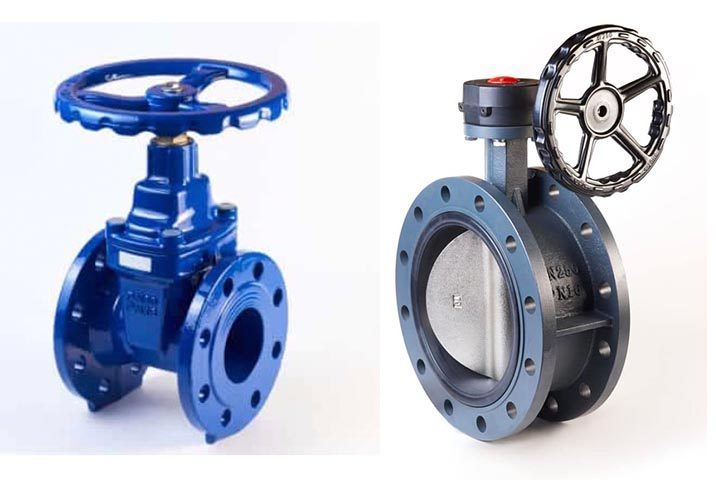Water Efficiency in the UAE: How Pressure-Reducing Valves Play a Role
Have you ever wondered why managing water pressure is such a big deal in a place like the UAE? With its desert climate, the UAE doesn't have abundant natural freshwater resources, which makes water conservation a national priority. In homes, offices, and industries across the country, even small steps can lead to big savings. One such step is the use of pressure-reducing valves, which play a surprisingly powerful role in using water wisely. These valves are simple mechanical devices, but they help control how much water flows through your pipes—and that has a big impact on both your water bill and the environment.
Pressure-reducing valves, often installed right after the water meter, help lower the pressure of water entering your building. Many homes and buildings in the UAE receive water at higher pressures than necessary. Without control, this can lead to unnecessary water wastage. Faucets gush more water than needed, showers use more water per minute, and appliances like washing machines wear out faster. A pressure-reducing valve ensures that the flow stays at a steady and manageable rate, reducing overall consumption without affecting your daily routines.
One of the biggest benefits of using pressure-reducing valves is their role in preventing leaks and pipe damage. High-pressure water can slowly damage joints and seals in plumbing systems, leading to leaks or even pipe bursts. In the long run, this leads to costly repairs and water waste. By keeping pressure under control, these valves extend the life of your plumbing system and reduce the chances of emergency maintenance.
For residential homes, the use of pressure-reducing valves is an efficient way to lower water bills. In many cases, households that install these valves notice immediate reductions in their monthly utility costs. You still get the same amount of water you need, but you use it more effectively. This is especially important in the UAE where water is a precious and often expensive resource. So, saving water also means saving money—without changing your habits.
In larger buildings and commercial spaces, pressure-reducing valves are equally important. These spaces use much more water on a daily basis, from cooling systems and restrooms to kitchens and landscaping. Even a small reduction in pressure across a big system adds up to thousands of liters saved over time. Facility managers and building owners in the UAE can meet sustainability targets and reduce operating costs by making pressure-reducing valves part of their water management plans.
Another interesting advantage of pressure-reducing valves is their impact on water heating systems. In many UAE households, water heaters are used extensively. When water flows at high pressure, heaters work harder to maintain temperature, consuming more electricity and wearing out faster. Lower pressure reduces the load on heaters, which helps save energy and improves appliance lifespan—yet another way these valves support both water and energy efficiency.
Installing pressure-reducing valves is also a smart move in new construction. As the UAE continues to grow and develop, new homes and communities are being built with sustainability in mind. Including these valves in the early stages of construction ensures that water usage is efficient from day one. Builders can easily include them as part of a broader eco-friendly building strategy, helping meet green building standards in Dubai and across the Emirates.
If you’re already living in a home or building that doesn’t have a pressure-reducing valve, retrofitting is usually straightforward. A licensed plumber can assess your water system and install the valve where needed. It's a relatively small investment compared to the long-term savings on maintenance and water bills. And because these valves work silently and automatically, there’s no need to adjust them frequently once they’re installed.
For those concerned about safety, pressure-reducing valves also help protect water fixtures and appliances. Toilets, faucets, water filters, and even irrigation systems are all designed to operate within a specific pressure range. Exceeding this range can shorten their lifespan or cause malfunction. By keeping pressure steady, the valve ensures your equipment runs smoothly and safely. And because pressure surges are minimized, the risk of accidents like burst pipes is much lower.
Finally, it’s worth noting that pressure-reducing valves contribute to the UAE’s larger vision for sustainability. The country has made strong commitments toward water conservation and efficient resource use, from building green cities to adopting advanced irrigation methods. When homeowners, businesses, and developers all take steps like installing these valves, it supports the national goal of building a greener future. It’s a small change that adds up across thousands of homes and businesses.
In conclusion, pressure-reducing valves might not be the flashiest piece of equipment in your plumbing system, but they are one of the most effective tools for promoting water efficiency. Whether you’re looking to reduce bills, prevent damage, or support eco-friendly living, these valves deliver real results. In a country like the UAE, where every drop of water counts, investing in smart pressure control isn’t just a good idea—it’s a responsible choice.



The article highlights the critical role of pressure management in boosting water efficiency across the UAE’s urban network. By pinpointing pressure zones, minimizing leak-prone areas, and optimizing pump operations, municipalities can significantly reduce water loss. Emphasizing smart infrastructure investment, this approach bolsters sustainability in the nation’s water-scarce environment.
ReplyDeletePlug Valve